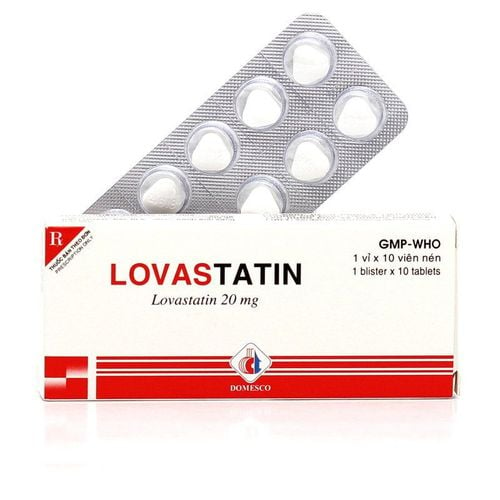This is an automatically translated article.
The health effects of saturated fat are controversial. Some nutritionists believe that consuming too much saturated fat — or even in moderation — can negatively affect health. While others argue that saturated fat is not harmful and should be included in the daily recommended food list.
1. What is saturated fat and why is saturated fat bad for health?
Fat is an important nutrient for human health. There are three main types of fats: saturated fats, unsaturated fats, and trans fats. All fats are made up of carbon, hydrogen, and oxygen molecules.
There are other types of saturated fat and different health effects. Saturated fats are found in many animal products such as milk, cheese, and meat. They are also found in abundance in vegetable oils, including coconut and palm oils.
Saturated fats are often thought of as bad fats and when classified they are often grouped with trans fats - a type of fat that is believed to cause many health problems.
However, it is a fact that the evidence on the bad effects of saturated fat on health is still inconclusive. In recent decades, health organizations around the world have recommended keeping saturated fat to a minimum and replacing it with vegetable oils such as canola and soybean oil, to reduce the risk of obesity. heart disease and promote overall health. Despite this, the prevalence of saturated fat-related heart disease has steadily increased, including obesity and type 2 diabetes.
Some experts suggest that it is due to excessive consumption of high-carb processed foods. Other experts argue that a single nutrient alone cannot lead to the onset and development of a disease, but that diet in general plays a major role. .

Chất béo bão hòa gây ra bệnh tim mạch
2. Effects of saturated fat on health
One of the main reasons for the recommendation to keep saturated fat to a minimum is that excessive consumption of saturated fats can increase risk factors for heart disease because they provide a lot of food. LDL cholesterol (bad cholesterol). However, this conclusion is not clear. Although saturated fat may increase certain risks, there are no specific studies that show that saturated fat is a major culprit in cardiovascular disease.
2.1 . Saturated fat is a risk factor for heart disease Many studies have shown that saturated fat intake increases risk factors for heart disease, including LDL (bad) cholesterol and apolipoprotein B (apoB) ). The more harmful LDL cholesterol in the body, the higher the risk of heart disease. Apolipoprotein is a powerful predictor of heart disease risk. Consuming a lot of saturated fat increases both of these risk factors.
In addition, the ratio of LDL (bad cholesterol) to HDL (good cholesterol), is another risk factor for cardiovascular disease. Although well-designed studies have shown a relationship between saturated fat intake and increased risk factors for heart disease, these studies have not found a significant association. statistics between saturated fat consumption and heart disease itself.
Plus, the most recent studies have not shown a significant association between saturated fat intake and all-cause mortality or stroke.
For example, a 2014 review study that compared and aggregated the results of 32 studies including 659,298 people found no significant association between saturated fat intake and heart disease.
A 2017 study that followed 135,335 individuals from 18 countries for 7.4 years demonstrated that saturated fat intake was not associated with stroke, heart disease, heart attack or heart disease-related death . Furthermore, randomized controlled studies have shown that replacing saturated fats with omega-6-rich unsaturated fats does not reduce the risk of heart disease and may even increase disease progression.
It's important to keep in mind that there are many types of saturated fat, each with different health effects.
2.2. Other concerns about the effects of saturated fat Although the effects of saturated fat on heart disease are still being studied and debated to date, saturated fat is also associated with negative effects. Other health effects, such as increased inflammation and mental decline :
Saturated fats partly promote inflammation by mimicking the action of bacterial toxins called lipopolysaccharides that lead to increased inflammation strong immune stimulant and can cause inflammation. For example, one study in 12 women compared two diets, one high in unsaturated fat from witch hazel and the other high in saturated fat from a palm oil blend. Results showed that a diet high in saturated fat increased inflammatory proteins such as interleukin-1 beta (IL-1 beta) and interleukin-6 (IL-6).

Chất béo bão hòa là nguyên nhân gây suy giảm tinh thần
3. Is saturated fat really bad for health?
Although research indicates that consuming certain foods high in saturated fat can have adverse health effects, this conclusion cannot be conclusively applied to all foods containing these nutrients. saturated fat.
For example, a diet high in saturated fat in the form of fast food, fried foods, sugary baked goods or processed meats is more harmful to health than a diet high in saturated fat found in whole milk, grass-fed meat, and coconut.
To assess whether saturated fat really affects health or not, it is necessary to consider the impact of the diet as a whole. The reality is that it is difficult to assess the individual impact of a certain nutrient on a person's health risks. For example, if in addition to consuming saturated fat, people also consume more sugar, causing more harm to health.
Lifestyle and genetic factors are also important risk factors that should also be considered, as they have also been shown to affect the likelihood of developing the disease.
For all of the reasons mentioned above, having well-designed studies is important in reaching final conclusions about the harmful effects of saturated fat.
4. Can saturated fat be part of a healthy diet?
There is no doubt that saturated fat should be considered part of a healthy diet.
Coconut products (eg copra or coconut oil), whole milk, and grass-fed meat are some examples of nutrient-dense foods high in healthy saturated fats.
Whole milk fat reduces the risk of cardiovascular disease, while coconut oil has been shown to increase HDL (good) cholesterol and may aid weight loss.

Cùi dừa có chứa nhiều chất béo bão hòa tốt cho sức khỏe
On the contrary, eating a lot of foods high in saturated fat such as fast food and fried foods increases the risk of obesity, heart disease and many other health conditions
Research also shows a high-food nutritional pattern Fresh, unprocessed foods help protect you from health risks like obesity, heart disease, and many other disease risk factors. It is a well-known fact that has been proven for decades that a healthy diet that reduces the risk of disease is a diet rich in nutrients, including whole foods, foods rich in fiber and inclusions. including foods high in saturated fat.
Remember, no matter what eating pattern you choose, the most important thing is balance and variety.
Please dial HOTLINE for more information or register for an appointment HERE. Download MyVinmec app to make appointments faster and to manage your bookings easily.
Reference source: healthline.com












